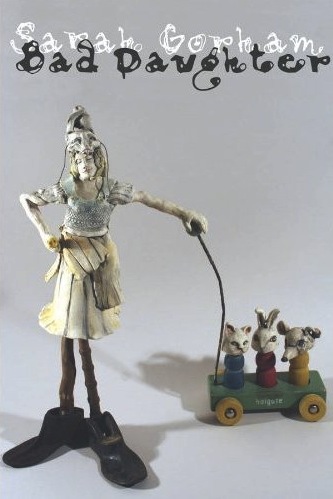
Poems Against War: Bending Toward Justice
edited by Gregg Mosson
Poetry
Wasteland Press, 2011
$11.95, 114 pages
ISBN: 978-1600474781
This large undertaking first had to engage the arguable idea that war in its time inevitably influences almost all poetry, that it helps define the zeitgeist. The poet–editor Gregg Mosson has taken this for granted, establishing this collection’s claim to public attention.
Since 2005 we have had two superb collections of poems about war, Brian Turner’s Here, Bullet, and Tony Barnstone’s Tongue of War. Turner, a soldier in the Iraq and Bosnian wars, speaks directly to experience. Barnstone gives the participants of the Pacific war voices in succinct sonnets. But the poets here often omit any mention of war—as in Rosemary Klein’s bitter and biting “Done Deal”—as they address the horrific impact of war on all our lives.
The book could hardly be timelier, coinciding as it does with the Occupy Wall Street movement, which describes the corporatist callousness that has engulfed us in war and debt. The book should have a place in all the “street libraries” that have popped up among the protesters, the kind of library the New York City police department recently destroyed in a butchery of the First Amendment.
“Today among all the chatter and argument in American society, how strange that so much excludes war’s human toll,” Mosson writes in his introduction. His plaint reminds us of all the disingenuous press reports about how inconvenient the Occupiers are, ignoring the immense issues for which they ask redress—ignoring the inconvenience of poverty and inequality.
The poet Antler, as is his wont, cuts to the chase and in so doing casually critiques one of the sillier aspects of American poetry. In “Writers Workshop,” he says:
A creative writing class listens
to the poet-professor explain why
political poetry is not
poetry but rants
disguised as poetry
and assigns them to write
for next class poems
about their grandmothers.
I hope any number of editors and anthologists are stung by this stanza. But this cutting remark about poetry classes and preferences is incidental to his larger purpose in three long poems showing us the fatuousness of fatwa and the tragic and ironic nature of life to which the terrorist attacks and the resultant war are marginal notes. The stone frogs at The Frick Museum, he observes, continued to spout, and before and after people were desperate.
The former poet laureate of the United States, Robert Pinsky, in his “Poem of Disconnected Parts,” writes,
The first year at Guantanamo, Abdul Rahim Dost
Incised his Pashto poems into Styrofoam cups.
Who would not weep for joy and despair at such an idea, such a cosmic impulse to create in the jaws of hatred and torment? Yes, the enemy have names, and hearts, and they share our longing to beautify our lives. This haunting couplet is like all the lines, all the donnees, poets have lost in their early morning hours, only here we have it; Pinsky didn’t lose it, and Mosson has collected it.
Anybody who thinks writing a good poem is easier than making a fine cabinet is an oaf. The cabinet will not come quickly, but the poem might, and so it’s easy to think the skill of the cabinetmaker, or say, a shipwright, is superior, but the catalyst of the poet’s mind has been at work all his or her life, and nothing is repeated, just as nothing is truly identical. An anthologist must not only understand this but celebrate it. Mosson succeeds.
David Starkey in “A Poem About the War” tells us something from which as a society we can’t recover, we can’t catch our breath:
...the veterans in my writing class,
with palpitations, confusions, forgetfulness,
nightmares, chest pain, shortness of breath,
and uncontrollable crying–a long list
of symptoms they claim keeps them
from handing in their work on time.
We did this to them, not the Iraqis, not the Afghans, not the terrorists. We are their terrorists. Watch how Starkey matter–of–factly says right up to the final enjambment that these victims claim symptoms, only in the final line to drop a bomb on us so profoundly mundane as to afflict us with the very same ill that afflicts them, post-traumatic stress disorder. But there is something much subtler going on in Starkey’s poem, and indeed in many of the other poems: here we are all trying to get over a trauma we can’t get over with ordinariness because we have both inflicted and suffered it. And only by his seemingly casual language can Starkey achieve this horrific recognition.
Mosson approaches this anthology with egalitarian élan. Some of the forty–four poets, like Pinsky and Tony Hoagland, are famous, some are well known, and others, like Robin Gunkel and Ron Williams, are hardly known at all. Robynn Murray and Jen Pacanowski are Iraq War veterans. Togu Ogunlesi is a Nigerian poet and Klaus Haacker is a German theologian.
This is emphatically not an anthology about grandma’s green thumb, grandpa’s spectacles, love, lust and divorce in the suburbs, or even contemporary angst. This is about today’s headlines, and also about what today’s news is concealing. It’s about the state of the holocaust unleashed by greed, racism and ideology, and its spiritual and physical cost. It’s a book of revelations, each one hair–raising and disquieting. No Occupier should be without a copy.
Quote

